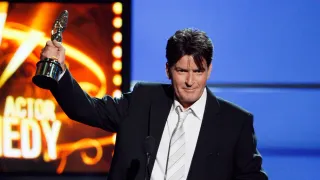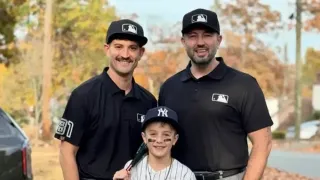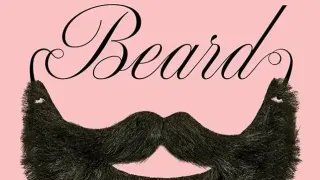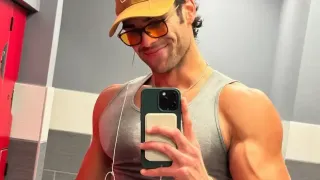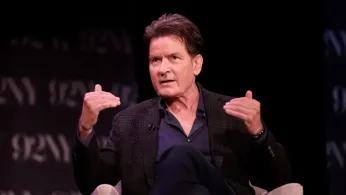
8 hours ago
Charlie Sheen Unfiltered: Sex, Sobriety, and Shattering the Myths of Queer Experience
READ TIME: 4 MIN.
If there’s one thing Charlie Sheen doesn’t do, it’s subtlety. The man who made “winning” a meme and “tiger blood” a punchline is now giving us another gift: the kind of candid, messy, hilarious—and yes, deeply human—conversation about queer sexual experience that rarely makes it to primetime. And he’s doing it with the same irreverence and wild honesty that made him both a sitcom king and a perpetual headline.
In a new Netflix documentary, aka Charlie Sheen, and his memoir, The Book of Sheen, Sheen lays out the facts: he has had sexual encounters with men. He’s not interested in shame, regrets, or even setting the “record straight” (pun totally intended). Instead, he’s using his story to push back against the tired tropes—the ones that reduce queer sex to a punchline or a taboo, and erase the nuances of real queer lives.
Sheen’s journey, as he tells it, didn’t start in a college dorm or a pride parade, but in the haze of substance use. “That’s what started it… Some of it was weird. A lot of it was f—ing fun,” he told Good Morning America. “It’s fucking liberating… just talk about stuff. It’s like a train didn’t come through the side of the restaurant. A f—ing piano didn’t fall out of the sky. No one ran into the room and shot me.”
The actor’s willingness to embrace the ambiguity of his own queer experience—without apology—matters. In a cultural moment where bi-erasure and rigid definitions of sexuality still dominate mainstream narratives, Sheen’s “so what?” attitude is a breath of fresh air. His story is not about conversion, confession, or coming out in the way the media expects. It’s about rejecting shame and the pressure to clarify, categorize, or sanitize queer experience for public consumption.
When Sheen’s comments hit the internet, social media spun up its own narrative: was he a top, a bottom, or… something else? Sheen, never one to dodge awkward questions, clarified with characteristic bluntness on In Depth with Graham Bensinger: “It wasn’t full-fledged, man… When people say ‘sex with men,’ you immediately think of, like, butt sex. Sorry to be graphic, but that’s kind of where the mind goes, right? But it wasn’t that.”
This isn’t just a celebrity PR clean-up—it’s a moment to question why our culture is so quick to collapse queer sexuality into a single act, or to judge experimentation as either “all in” or “not in at all.” Sheen’s insistence on describing his experience as “not full-fledged” isn’t about distancing himself from gay identity, but about challenging the binary thinking that still shapes public attitudes toward sexual fluidity.
“It’s not a shame thing,” Sheen clarified. “It’s just kind of like a, ‘Huh, is a bit of a broad category.’” For LGBTQ+ readers, this is a familiar frustration: the pressure to explain, justify, or detail the specifics of queer sex as if it’s a public performance, instead of a private journey. Sheen’s refusal to play along—his embrace of the “messy middle”—may be the most radical thing about his revelations.
Sheen’s story is inseparable from the other struggles that have shaped his life—addiction, HIV, and public scandal. He’s frank about how his sexual experimentation coincided with his years of crack use, and how his HIV diagnosis added another layer of stigma and secrecy. Sheen disclosed his status publicly in 2015, after years of blackmail attempts, and has repeatedly insisted: “I do know for a fact that I never passed it on.”
For many LGBTQ+ people, especially those living with HIV, Sheen’s story resonates as both cautionary and cathartic. It’s a reminder that queer lives—celebrity or not—are often shaped by forces beyond our control, and that disclosure can be an act of resistance against the shame that still clings to both addiction and HIV. Sheen’s willingness to speak openly, and to insist on his own dignity, offers a model for others navigating their own complicated histories.
Sheen’s story isn’t about claiming a new identity, joining a parade, or redefining his sexuality for the cameras. It’s about acknowledging that queer experimentation is part of the human experience—and that it doesn’t need to fit into tidy boxes. “They say you experiment in college, you know? I never went to college, so maybe that explains it,” he joked, underlining the randomness and unpredictability of sexual discovery.
For LGBTQ+ audiences, his candor is both affirming and validating. It’s a reminder that queer experience isn’t just about identity or orientation—it’s about the freedom to explore, the right to tell your own story, and the courage to laugh at the awkward parts.
The queer community is no stranger to the scrutiny, rumor, and moral panic that often follow celebrity disclosures. But Sheen’s approach—funny, unashamed, and fiercely resistant to shame—offers a new template. Instead of apologizing or explaining, he’s inviting us to embrace the complexity of queer lives, and to see experimentation as a sign of curiosity, not confusion.
As debates about bisexuality, sexual fluidity, and the meaning of “queer” rage on, Sheen’s story is a timely reminder: the only person who gets to define your experience is you. Whether you’re a Hollywood legend or just figuring things out, there’s power in saying, “So what? Life goes on.”
Charlie Sheen’s revelations won’t end stigma overnight, and they won’t erase the tabloid circus that has long surrounded his life. But they do offer something rare: a story about queer experimentation that is honest, messy, and deeply human. For LGBTQ+ readers, it’s a call to reject shame, push back against binary thinking, and claim the right to own your narrative—however complicated it might be.
As Sheen puts it: “It’s liberating… to just talk about stuff.” In a world that still wants queer people to explain, justify, or sanitize their experience, there’s nothing more radical than refusing to feel ashamed.

